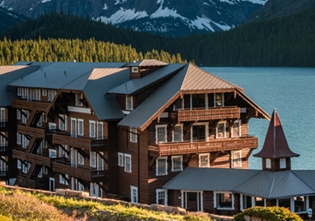Last updated: January 14, 2025
Article
Local Procurement for Food and Beverage Concessioners

Locally Sourced Wine and Spirits
Locally sourced wine and spirits complement the local food movement, enhancing the overall dining experience while contributing to sustainability. By sourcing wine and spirits from local vineyards and distilleries, consumers reduce the carbon footprint associated with transporting these products over long distances. Local producers often focus on sustainable farming and production methods, using fewer chemicals and embracing organic practices that align with eco-friendly principles.When reviewing options for local wine procurement, consider looking for the following certifications and labels:- Lodi Rules Certified Green
- Low Input Viticulture & Enology (LIVE) Certified Sustainable
- Demeter Certified Biodynamic
- Sustainability in Practice (SIP) Certified
- USDA Organic.
Local Foods
The National Park Service (NPS) Healthy Food Choice standards and Sustainable Food Choice guidelines encourages concessioners to provide local, seasonal products and ingredients to their consumers. Locally sourced foods, like wine and spirits, connect visitors to the cultural and natural resources at a park. At Mount Rushmore National Memorial, the Memorial Ice Cream Shoppe offers vanilla ice cream using Thomas Jefferson’s original recipe, connecting visitors of all ages to the cultural history. Concessioners can create a cultural experience for visitors by highlighting local items. At Shenandoah National Park, concessioners include the abundant blueberries grown in the local area. In Montana parks, huckleberries are highlighted. In Alaska, kelp pickles draw the attention and curiosity of visitors.
Environmental Impact
Local food and beverage sourcing significantly reduces transportation emissions as they travel shorter distances from farm to plate or vineyard to glass. This decreases fuel consumption and minimizes greenhouse gas emissions associated with transporting food and beverages. Additionally, because local products spend less time in transit, they retain more nutrients and flavor, enhancing the overall dining experience.Sustainable agricultural practices contribute to soil health and reduce pollution. By supporting local farms, vineyards, and distilleries, concessioners can encourage better land management and conservation efforts, helping preserve open spaces and natural habitats for future generations.
Economic and Community Benefits
When concessioners purchase locally, they directly support local farmers and businesses, keeping money within the community and fostering economic resilience. This, in turn, creates jobs in farming, distribution, and retail, bolstering the local economy.Local food initiatives also foster community connection and awareness. These initiatives often include programs that educate consumers about sustainable practices, food origins, and supporting local growers. Additionally, embracing local foods helps preserve traditional food practices and cultural heritage, strengthening community identity.Enhanced food security is another critical benefit of local food systems. A robust regional food network improves community resilience during crises, ensuring access to food even when global supply chains are disrupted.
Conclusion
Incorporating locally sourced wine and spirits into your operations supports sustainability and enhances cultural appreciation and economic resilience within the community. Visitors can enjoy high-quality products while contributing to a more sustainable and vibrant local economy by choosing local.See more ways to foster a sustainability ethic in alignment with the NPS Green Parks Plan.
